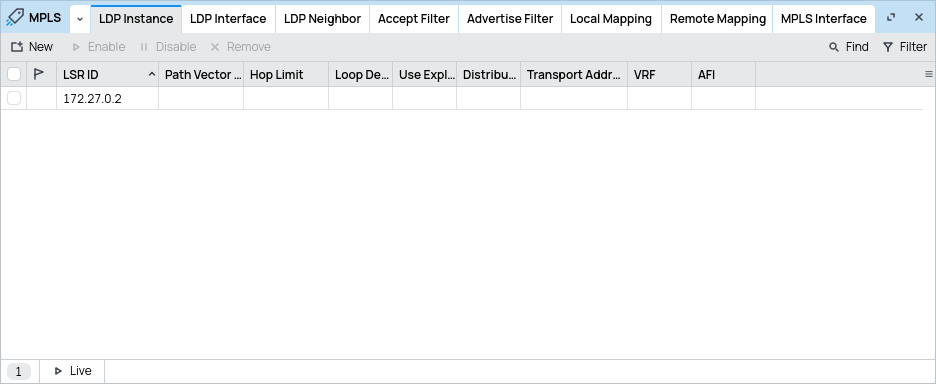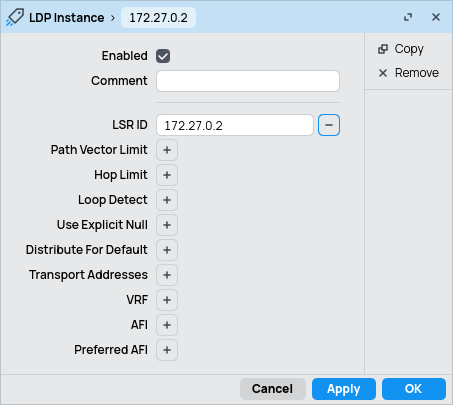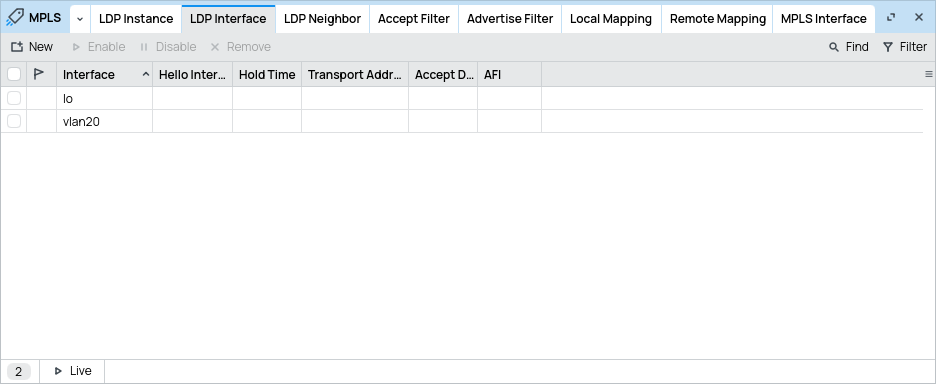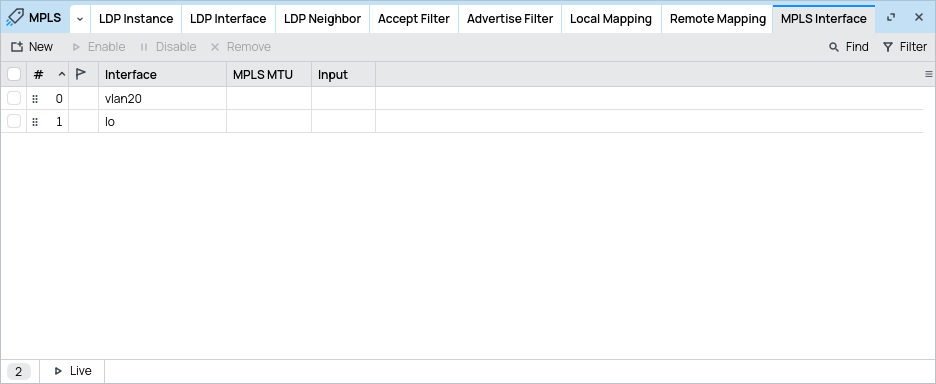LDP
Multi Protocol Label Switcing (MPLS) routers speed up routing in large networks by using label switched paths. Label Distribution Protocol (LDP) distributes labels between routers to enable MPLS. Working MPLS is a prerequisite for Virtual Private LAN Service (VPLS).
Enabling LDP
Navigate to the ‘MPLS’ menu and select ‘MPLS’. Create a new LDP instance. It is a good idea to set the LSR ID to that of the router’s loopback IP address, for identification.


Add LDP to interfaces which face other routers. These should include the loopback interface.

Do the same under the ‘MPLS’ tab to enable MPLS on interfaces which face other routers.

Setting up a Juniper SRX320 Neighbour
To use the Juniper SRX320 as a router, enter the following configuration;
delete security
set security forwarding-options family mpls mode packet-based
set security forwarding-options family iso mode packet-based
set security forwarding-options family inet6 mode packet-based
Reboot the device, as directed. This step is specific to SRX devices used as routers.
Enable LDP and MPLS on the Juniper, on interfaces connected to other core routers. These include the interfaces participating in IGP, and the router’s loopback interface which will be used for VPLS;
set protocols ldp interface <=>
set protocols mpls interface <=>
Additionally, add the ‘mpls’ family to the same interfaces;
set interfaces <=> family mpls